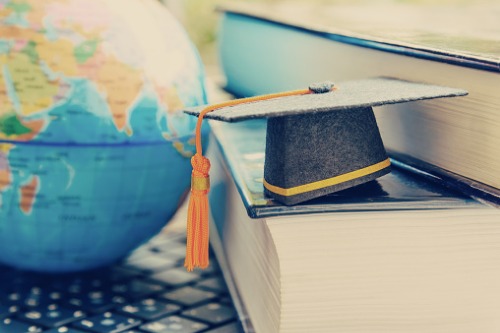
Volunteering and learning about different cultural perspectives have been rated as the most effective practices in boosting a global mindset for young people, a new worldwide study has found.
The study, which involved more than 11,000 teenagers and 1,900 teachers in 34 countries, is the first of its scope to identify which education practices effectively support PISA global competencies.
Nine in ten teachers (90%) and three-quarters of students (76%) said volunteering their services in the wider community made them more ‘globally competent’. Celebrating cultural diversity, discussing world events and learning how to solve conflicts ranked 3-5 say teachers and students
These five approaches not only came out of the study as statistically significantly related to multiple PISA global competencies but were also were rated “effective” or “very effective” by the majority of teachers and students, who rated volunteering as the most effective overall, and their opinions backed up by numerous practical examples.
‘Thinking globally, and acting locally’
Dr. Christina Hinton and team of researchers from Research Schools International and the Harvard Graduate School of Education, conducted the study on behalf of Round Square.
“Students will need global competence to engage in international collaborations in fields such as science, health, and technology, navigate an internationally interdependent economic and political landscape, and tackle global issues like climate change,” Dr Hinton said.
Dr Hinton said research indicates that these practices can be adapted for use in a diversity of schools across various countries, which makes their potential for impact “quite inspiring”.
“By spearheading this work, Round Square can have ripples of impact in schools around the globe,” she said.
But as one teacher from Ivanhoe Grammar School in Melbourne pointed out, students don’t have to travel abroad – they can “think globally and act locally”.
“We encourage kids to help volunteer or participate in local charity...if they are physically or financially unable to travel overseas,” the teacher said.
“This can empower students to see that anyone can make a difference on a global scale in their local environment - every little bit helps.”
Students at Radford College in Canberra, for instance, frequently mentioned ‘Worn Soles’ week, “where students learn to develop an understanding of what it is like to be a refugee.”
During this week, students are asked to try living as a refugee for one day. They also have opportunities to listen to talks from guest speakers and participate in group activities.
Inspiring students to create their own change
Learning about different cultural perspectives was also deemed by four-fifths of students (81%) and by a similar proportion of teachers (86%) as one of the best ways to nurture global competence.
These involved such things as interactions with exchange students, connections with schools abroad, and pen pals, but also things like debates and school clubs that celebrated diversity.
Participating in events that celebrated cultural diversity was also popular with teachers, with over four-fifths of them (83%) saying it was effective. Whilst students agreed, this was to a lesser degree, with 68% rating it as effective, the lowest scoring of the top five practices identified.
Researchers found that events such as observing religious and cultural holidays, hosting debates on global issues or inviting in guest speakers from different backgrounds all contributed to greater cultural inquisitiveness among students and deeper self-awareness of their own values and views.
One student from Bunbury Cathedral Grammar School in Gelorup, Western Australia recalled her service project experience in Vietnam.
“My attitude towards climate change and global warming has changed to become a more positive outlook,” she student said.
“I feel inspired to create my own change and change in others which I now believe can and will have an impact on the future health of our planet.”


